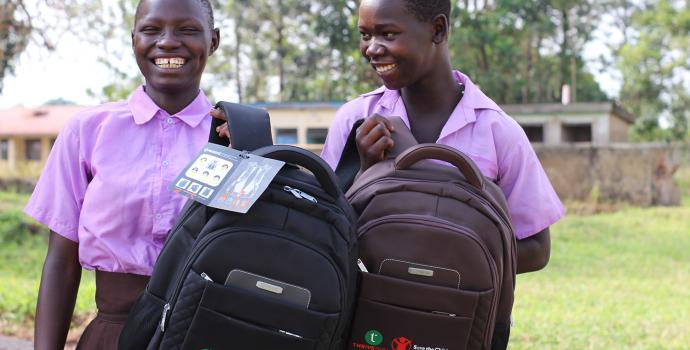Refugees’ education agenda attracts joint support

Children in refugee settlements have appealed to the Government and development partners to address all the bottlenecks that undermine their resolve to education.
They said the challenges they face range from travelling long distances, hunger, congestion in classrooms, language barrier, on top of the safety of some of the schools being questionable.
They raised the concerns during a dialogue with key stakeholders as part of the First Emergency Response (FER) project closure event at Golden Tulip Hotel in June.
Since June last year, the project has played a crucial role in supporting newly arrived refugee children and their host community peers including children with disability to access quality education in Rhino Camp, Palabek, Rwamwanja, and Nakivale settlement.

With funding from Education Cannot Wait, Save the Children in a consortium with A VSI, Education Local Expertise Centre Uganda, and Finn Church Aid, Humanity and Inclusion have been supporting the education of refugee children and host communities in the last one year through the FER project. Other partners are the Norwegian Refugee Council, Right to Street Child, Thrive Gulu, War Child Alliance, Windle International, Young African Refugees for Integral Development and ZOA.
The state minister for primary education, Dr Joyce Moriku Kaducu, said out of the over 1.6 million refugees currently hosted in Uganda, there are over 700,000 school-aged children and their host community peers who have the right to safe and quality education.
Represented by Dr Cleophus Mugenyi, the commissioner of basic education at the ministry, Kaducu said Uganda needs over shl.7 trillion to achieve its education response plan on refugees and host communities.
The Lamwo district education officer, Barnabas Langoya, who was part of the dialogue, said since most of the schools in refugee camps are owned by the communities and basically supported by partners, there is a problem with school fees.

Save the Children country director Dragana Strinic said there was a need to support children to enrol in school.
"This is an opportunity to remind ourselves of the importance of the Education Response Plan for refugees and host communities and ensuring that funding is mobilised for children to access safe and quality education," Dragana said.
During the delivery of the ERP, among others, 1 1,028 classrooms and 4,393 latrine stances were established for primary, secondary, and accelerated education programmes. Academic improved performance improved, with 97% more children sitting for primary leaving exams.




